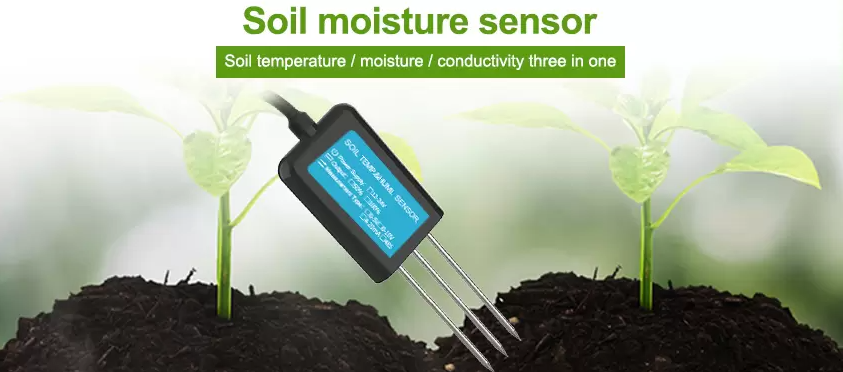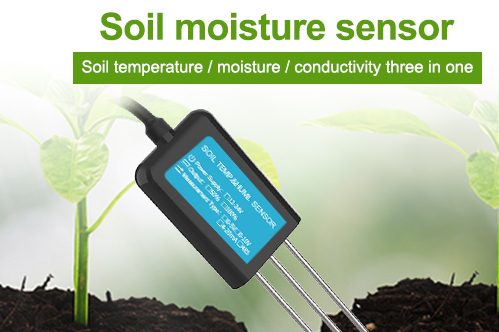Understand the Soil moisture probe
Soil moisture probe are valuable tools for monitoring the moisture levels in the soil. These probes provide accurate and real-time data on the moisture content at different depths within the soil profile. By placing the probe at desired locations in the field, farmers and land managers can obtain precise information about soil moisture conditions. This data enables them to make informed decisions about irrigation scheduling, nutrient application, and overall crop management strategies.

Benefits of using soil moisture probe
One of the primary benefits of using soil moisture probes is maximizing crop health and yield. Different plants have varying moisture requirements at different growth stages. With a moisture probe, farmers can monitor the soil moisture levels closely and ensure that plants receive optimal hydration. By maintaining an appropriate moisture balance, plants can efficiently uptake nutrients, develop robust root systems, and achieve maximum growth potential. The ability to track soil moisture trends empowers farmers to adjust irrigation practices accordingly and prevent both water stress and waterlogging issues that can harm crops.
Water management is a critical aspect of sustainable agriculture and environmental conservation. Excessive water usage in farming practices can result in water waste, energy consumption, and unnecessary strain on natural water resources. On the other hand, inadequate water supply can lead to yield losses and environmental damage. Soil moisture probes allow farmers to optimize water usage by providing precise information on soil moisture status. With this data, farmers can tailor their irrigation strategies to match plant needs, reducing water wastage and conserving valuable resources.

Moreover, soil moisture probes support precision agriculture techniques. Precision agriculture aims to maximize efficiency and minimize input usage by applying resources precisely where and when they are needed. With the help of soil moisture probes, farmers can accurately determine the irrigation needs of different areas within a field. This knowledge enables them to adopt site-specific irrigation practices, adjusting water application rates and schedules based on the actual moisture requirements of each zone. As a result, water, fertilizer, and energy are used more efficiently, leading to increased crop productivity and cost savings.
Soil moisture probes utilize various technologies to measure moisture content accurately. Capacitance-based probes measure the dielectric properties of the soil, while time-domain reflectometry (TDR) probes use electrical pulses to assess soil moisture levels. Both methods provide reliable data for decision-making. These probes are often equipped with sensors that measure temperature and conductivity, providing additional information about soil conditions that affect plant growth.
Conclusion
soil moisture probes are indispensable tools for maximizing crop health and conservation efforts. By monitoring soil moisture levels, farmers and land managers can ensure optimal water management, enhance crop productivity, and conserve valuable resources. The ability to make informed decisions about irrigation scheduling and nutrient application results in efficient water usage, reduced environmental impact, and improved farming practices. Investing in soil moisture probes is an investment in sustainable agriculture and the future of food production.
